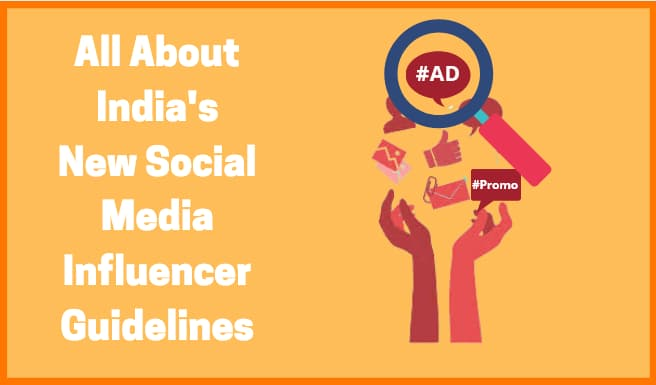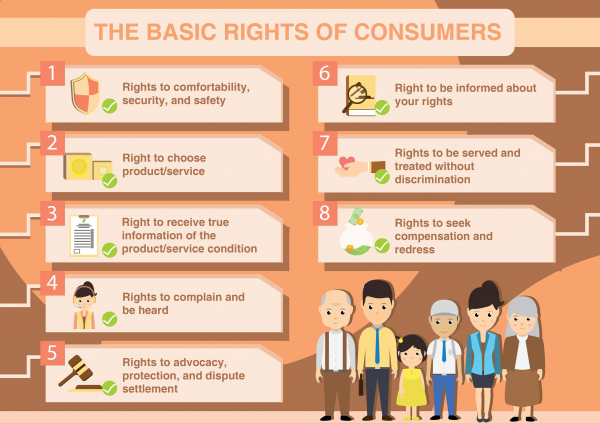Description

Copyright infringement not intended
About:
- The Union Government has released guidelines for celebrities and social media influencers.
- Under the guidelines, it is mandatory to disclose the material benefits of a product or a brand they are promoting through their social media platforms.
- They should not promote any product or service and service in which due diligence has been done by them or that they have not personally used or experienced.
- The disclosures must be displayed in the endorsement and terms such as ‘advertisement’, ‘sponsored’ or ‘paid promotion’ should be used for all sorts of endorsements.
- Endorsements must be made in simple, clear language and terms such as ‘advertisement,’ ‘sponsored,’ or ‘paid promotion’ can be used.
- In the case of the live stream, disclosures should be displayed continuously and prominently during the entire stream.
- The guidelines aim to ensure that;
- Individuals do not mislead their audiences when promoting products or services.
- They comply with the Consumer Protection Act and any associated rules or guidelines.
- Penalty for misleading advertisements;
- Under the Consumer Protection Act 2019, the Central Consumer Protection Authority (CCPA) can impose a penalty of up to Rs 10 lakh on manufacturers, advertisers and endorsers and for repeated offences, a penalty of up to ₹ 50 lahks can be imposed.
- The CCPA can also prohibit the endorser of a misleading advertisement from making any endorsement for up to one year and subsequent contravention, prohibition can extend up to three years.
- Significance
- The increasing reach of digital platforms and social media resulted in a rise in the number of celebrities and social media influencers. This increased the risk of consumers being misled by advertisements and unfair trade practices by these individuals on social media platforms. The guidelines will ensure transparency and promote responsibility among social media influencers and save consumers from misleading or unfair practices.
.jpeg)
Consumer Protection Act, 2019:
- The Act defined a consumer as a person who buys any goods or avails of service for final use.
- It does not include a person who buys a good for resale or a good or service for commercial purposes.
- It covers transactions through all modes including offline, and online.
- The Act clearly defined 6 Rights of consumers:
- Right to be protected against the marketing of goods and services which are hazardous to life and property.
- Right to be informed about the quality, quantity, potency, purity, standard and price of goods or services.
- Right to Choice among a variety of goods or services at competitive prices.
- Right to be heard
- Right to seek Redressal against unfair or restrictive trade practices.
- Right to Consumer Awareness
- Central Consumer Protection Authority (CCPA) promotes, protects and enforces the rights of consumers.
- It functions under the guidelines of The Minister of Consumer Affairs, Food and Public Distribution
- It regulates matters linked to the violation of consumer rights, unfair trade practices, and misleading advertisements.
- The CCPA has an investigation wing; they may conduct an inquiry or investigation into the case of violations of rules.
- Central Consumer Protection Authority (CCPA) functions;
- Inquiring into violations of consumer rights, investigating and taking appropriate action.
- It could pass orders to recall goods or withdraw hazardous services, and refund the price paid.
- It Issues directions to the concerned trader/ manufacturer/ endorser/ advertiser/ publisher to either discontinue a false or misleading advertisement.
- It imposes penalties on a manufacturer or an endorser of up to Rs 10 lakh and imprisonment for up to two years for a false or misleading advertisement. In case of a subsequent offence, the fine may extend to Rs 50 lakh and imprisonment of up to five years.
- It Issues safety notices to consumers against unsafe goods and services.

- Consumer Disputes Redressal Commissions (CDRCs) at the District, State, and national levels.
- Appeals from the State CDRC will be heard by the National CDRC.
- The final appeal to the Supreme Court.
- The District CDRC will entertain complaints where the value of goods and services does not exceed Rs 1 crore.
- The State CDRC will entertain complaints when the value is more than Rs 1 crore but does not exceed Rs 10 crore.
- Complaints with a value of goods and services over Rs 10 crore will be entertained by the National CDRC.


https://www.thehindu.com/news/national/product-promotions-govt-makes-disclosure-of-material-interest-mandatory-for-social-media-influencers/article66414009.ece












